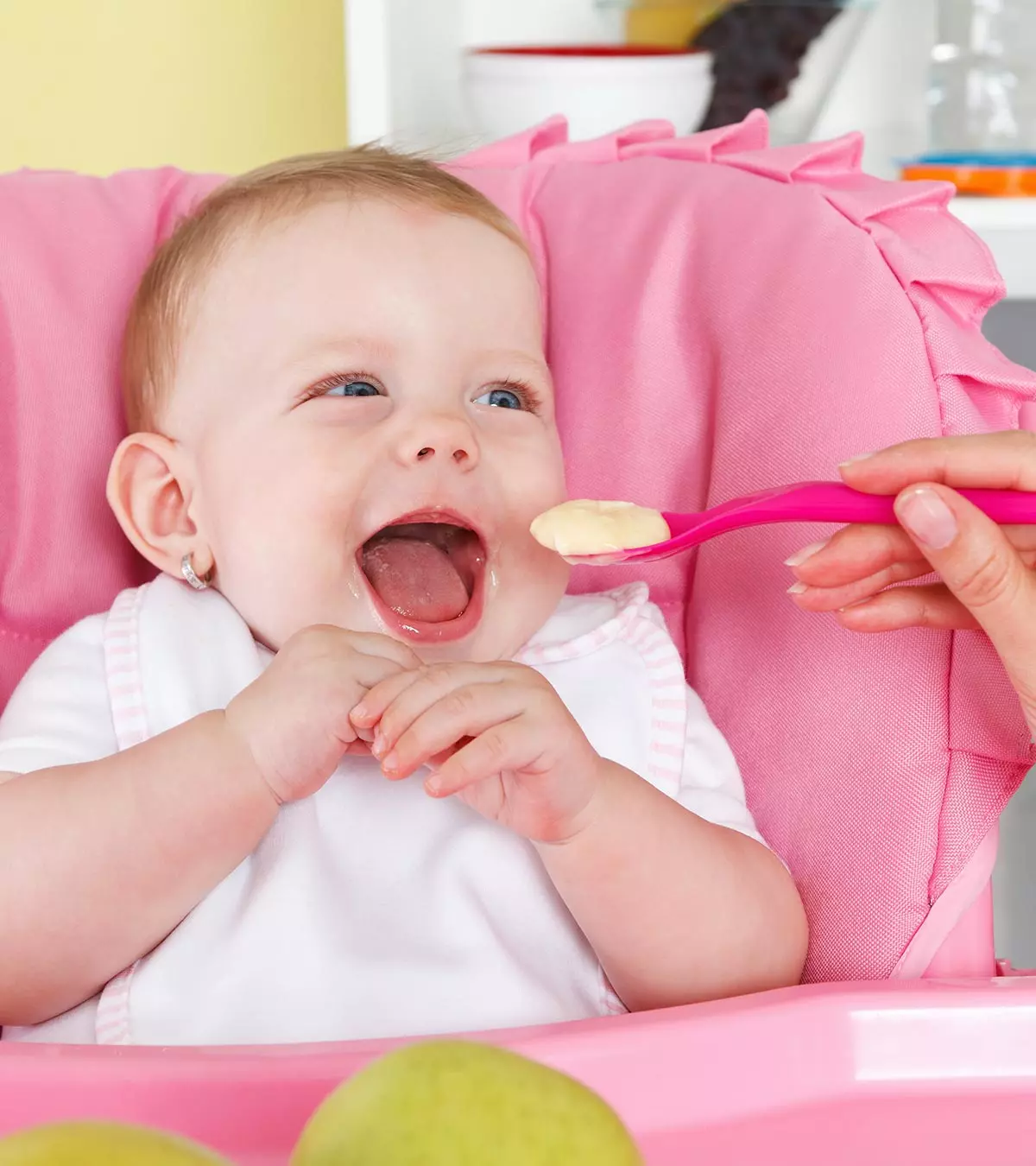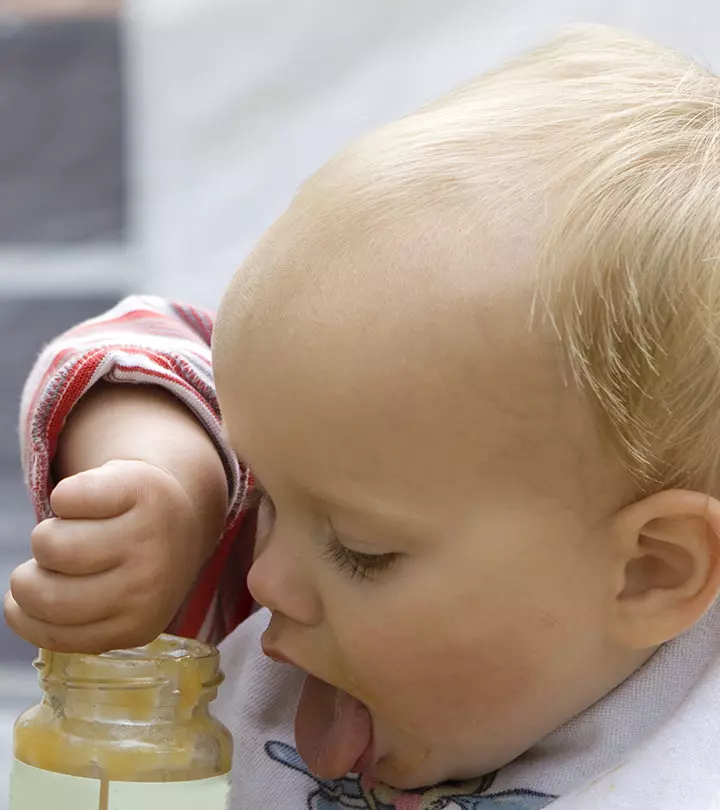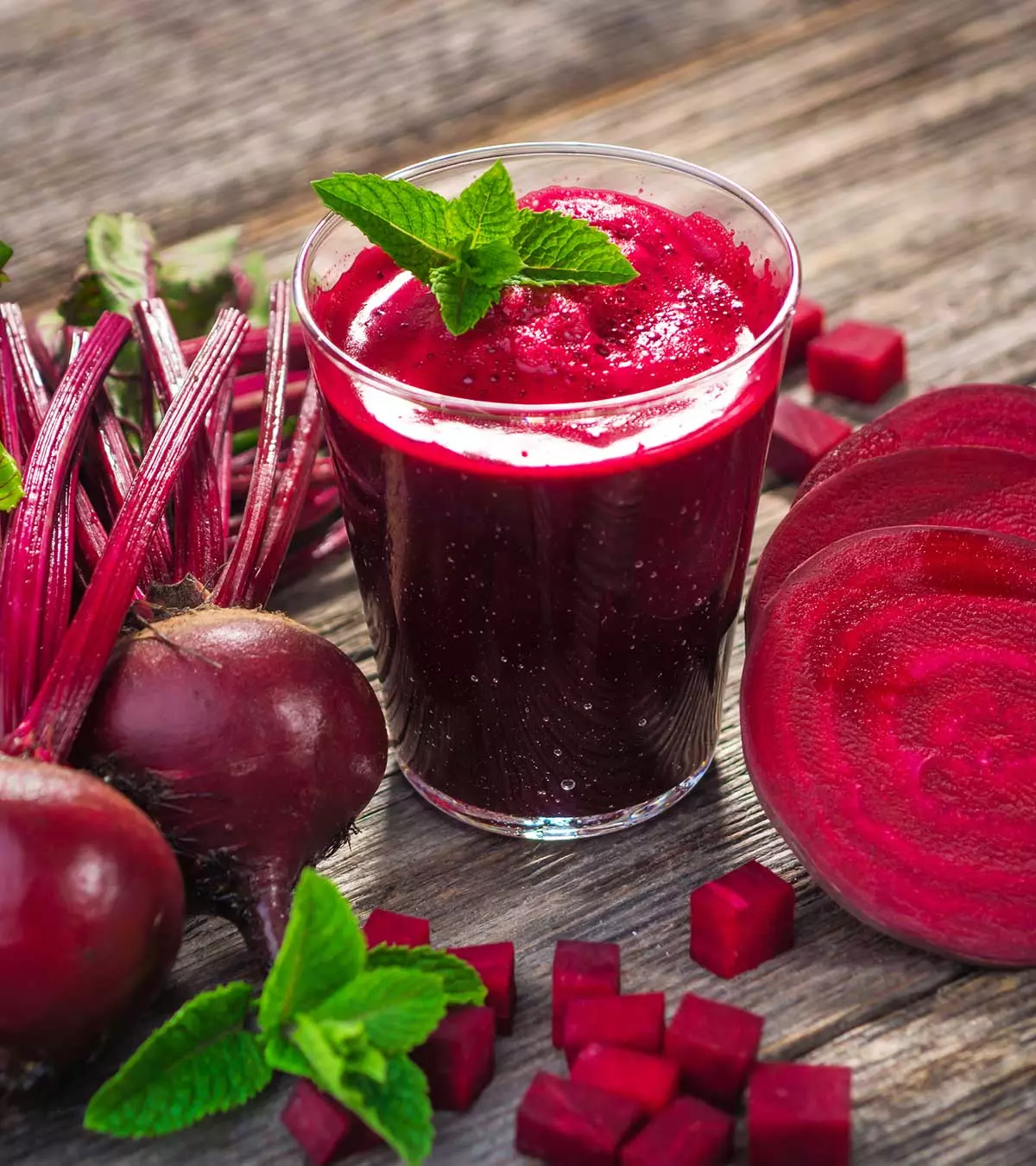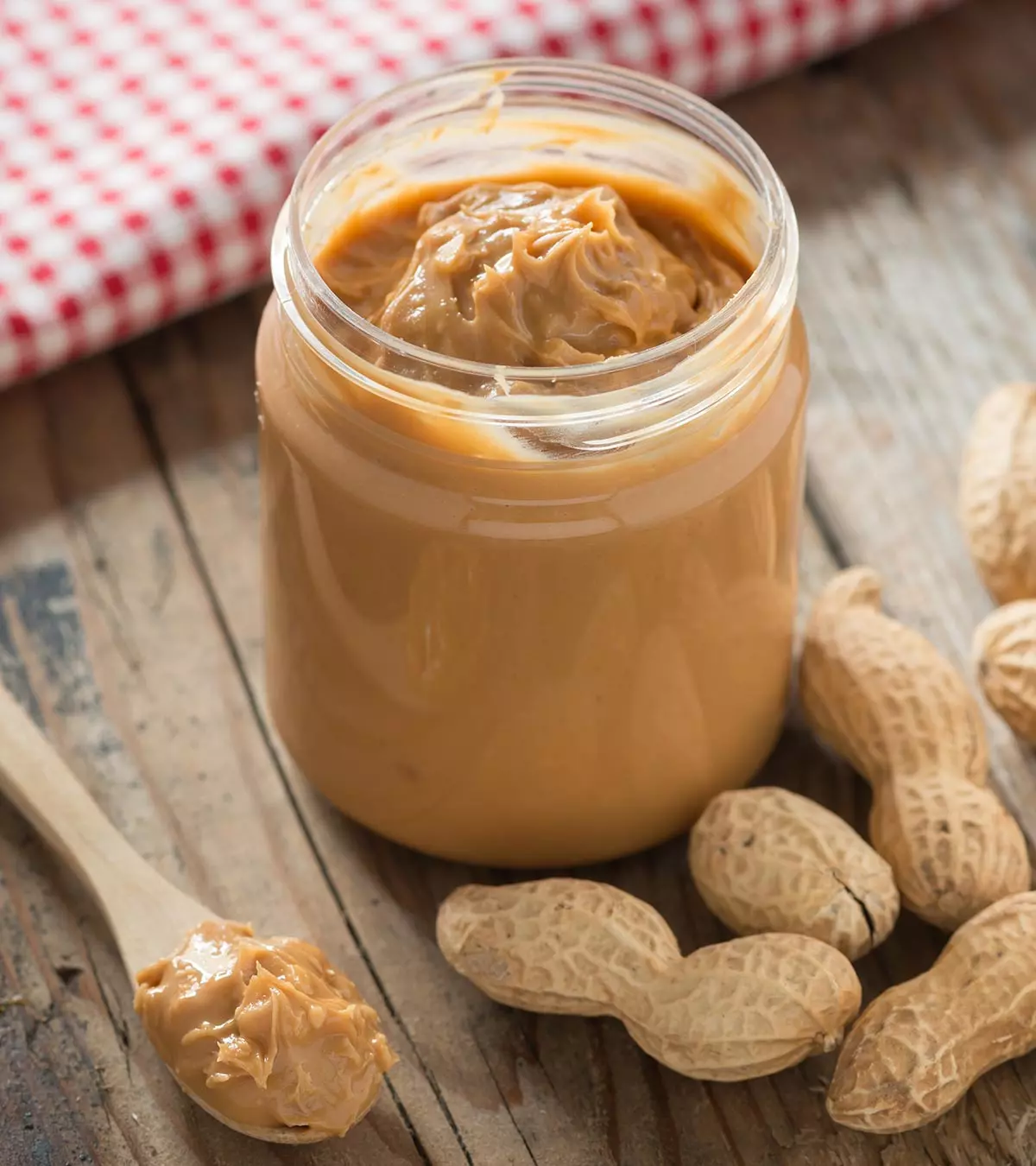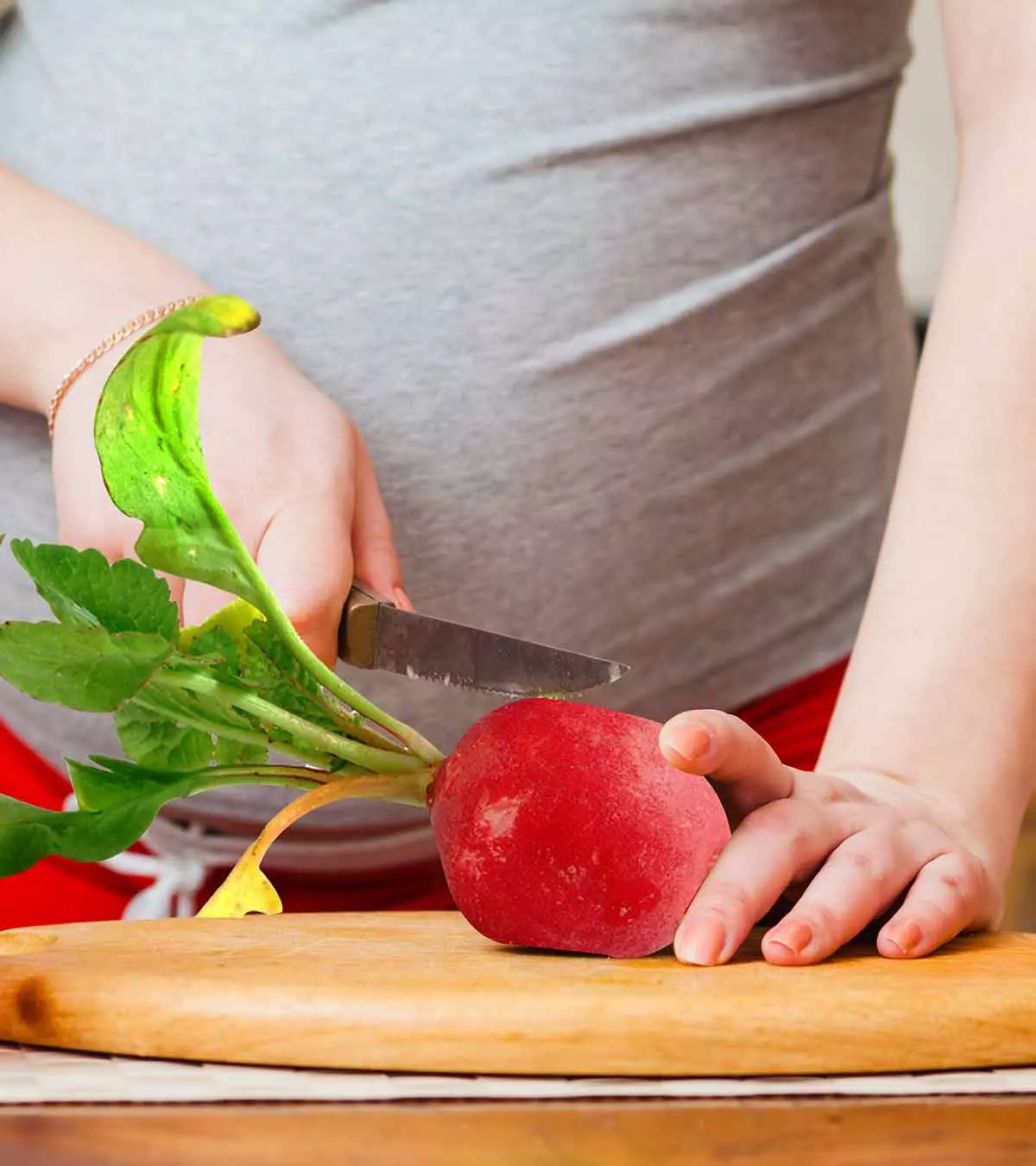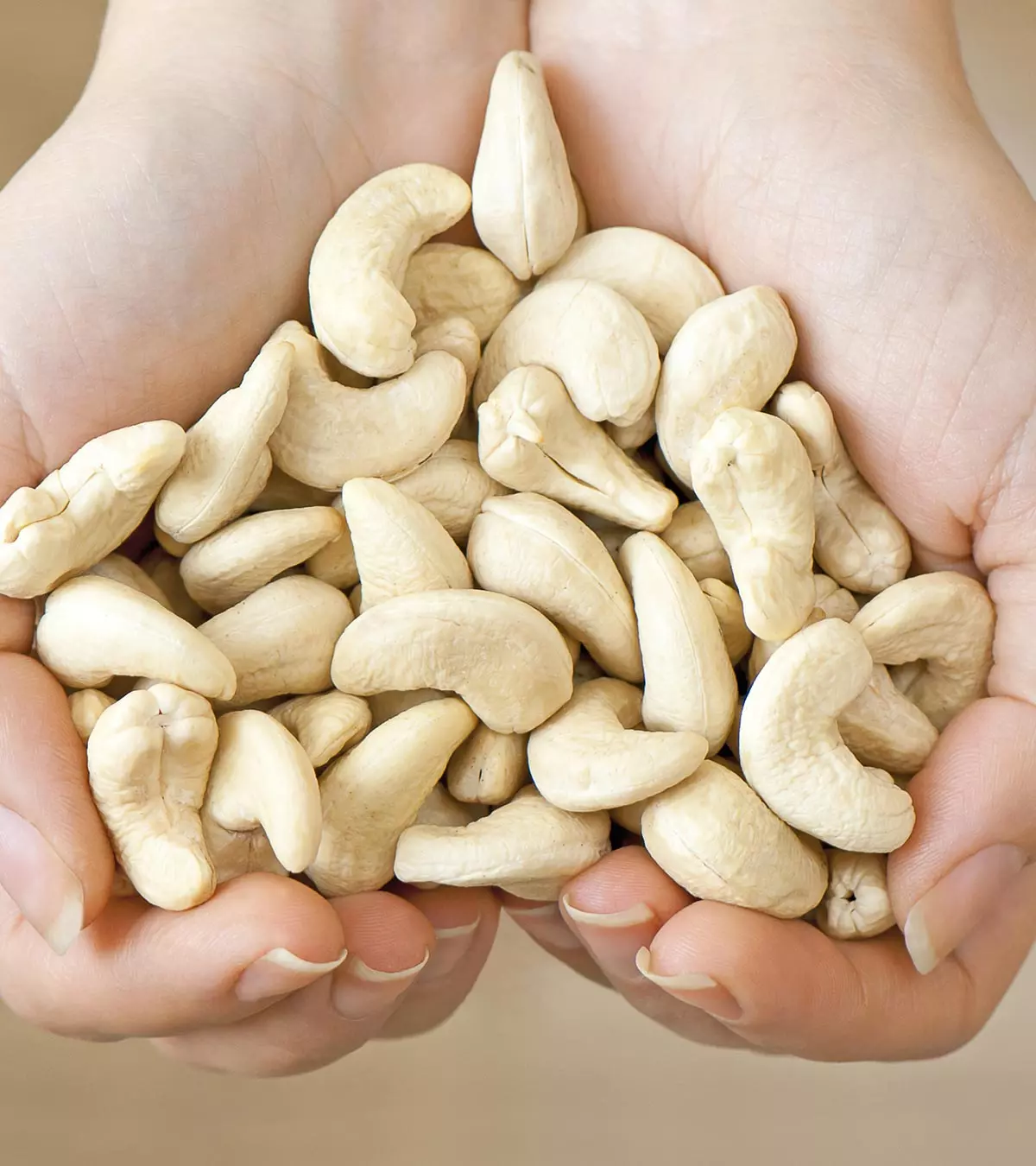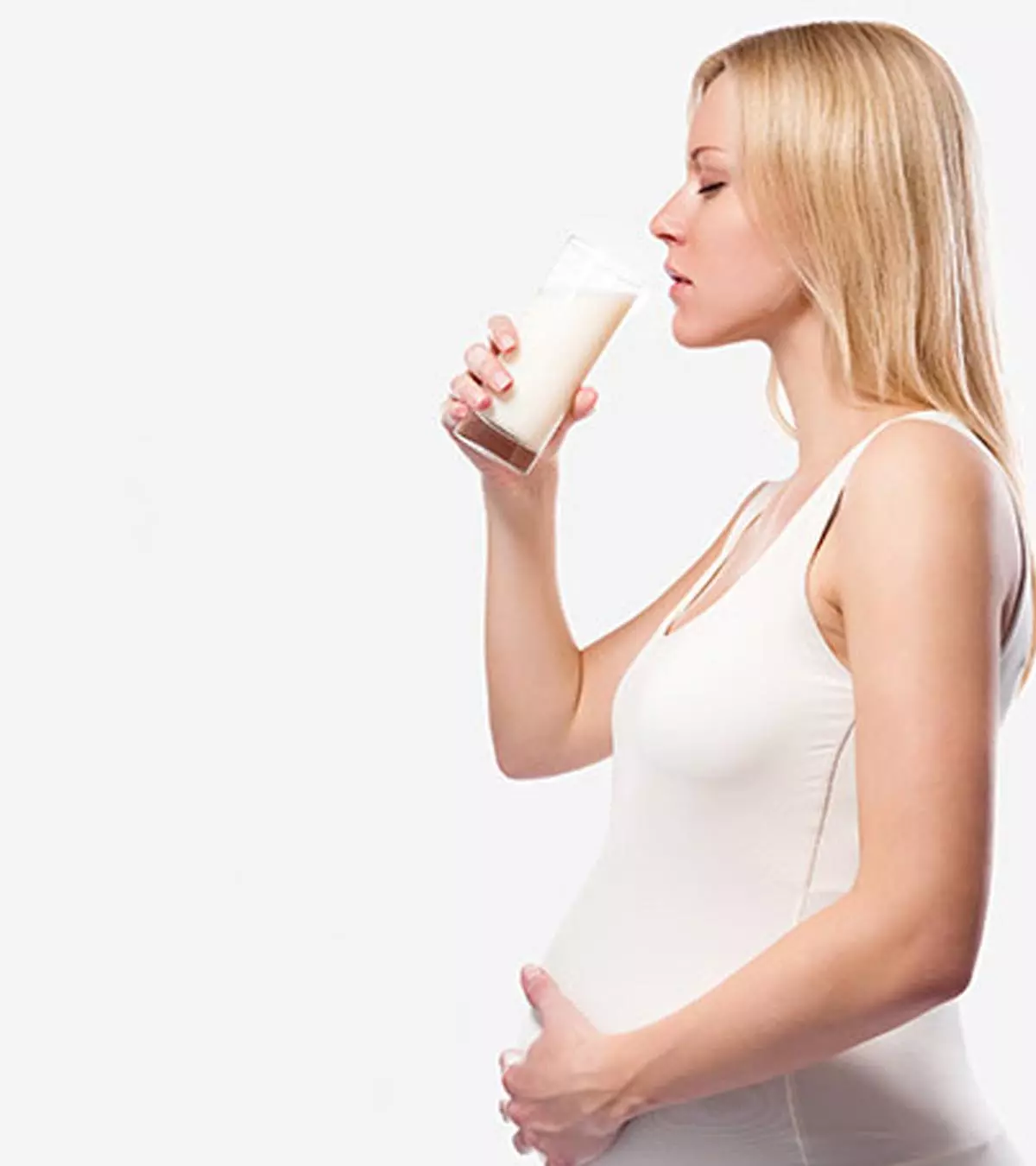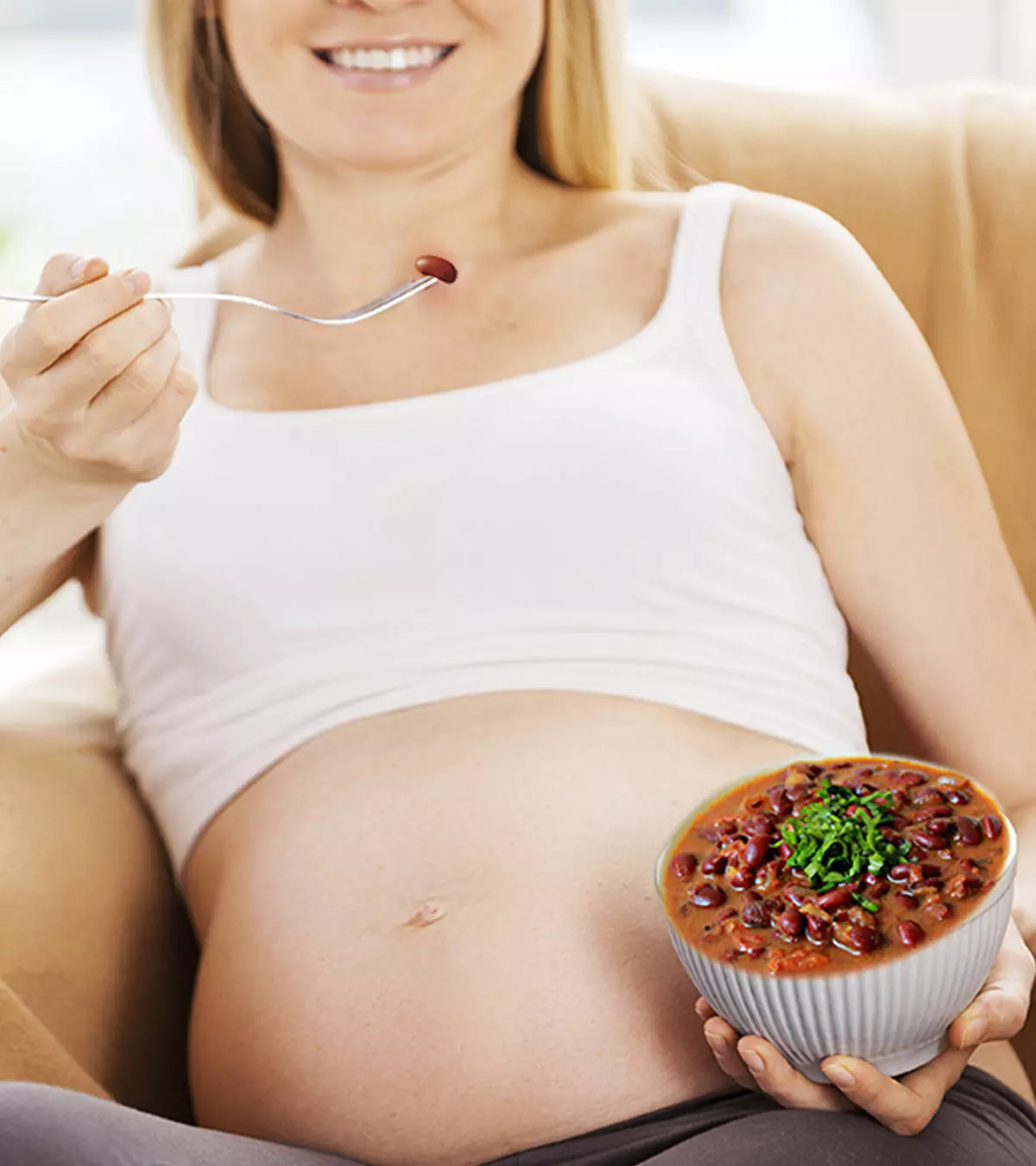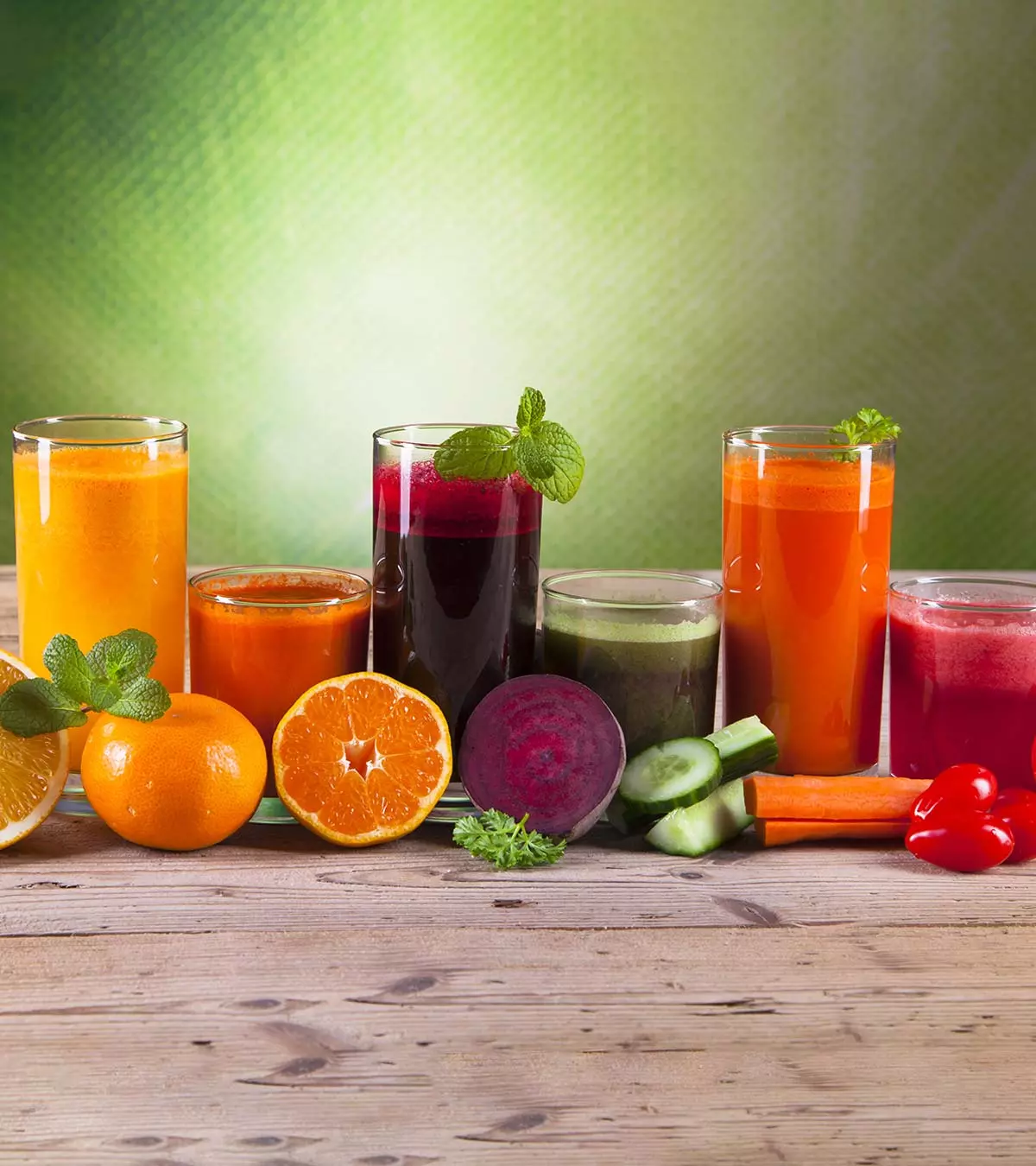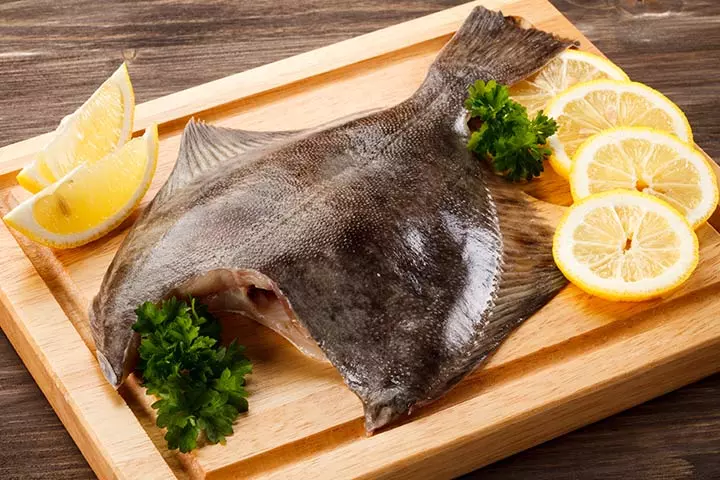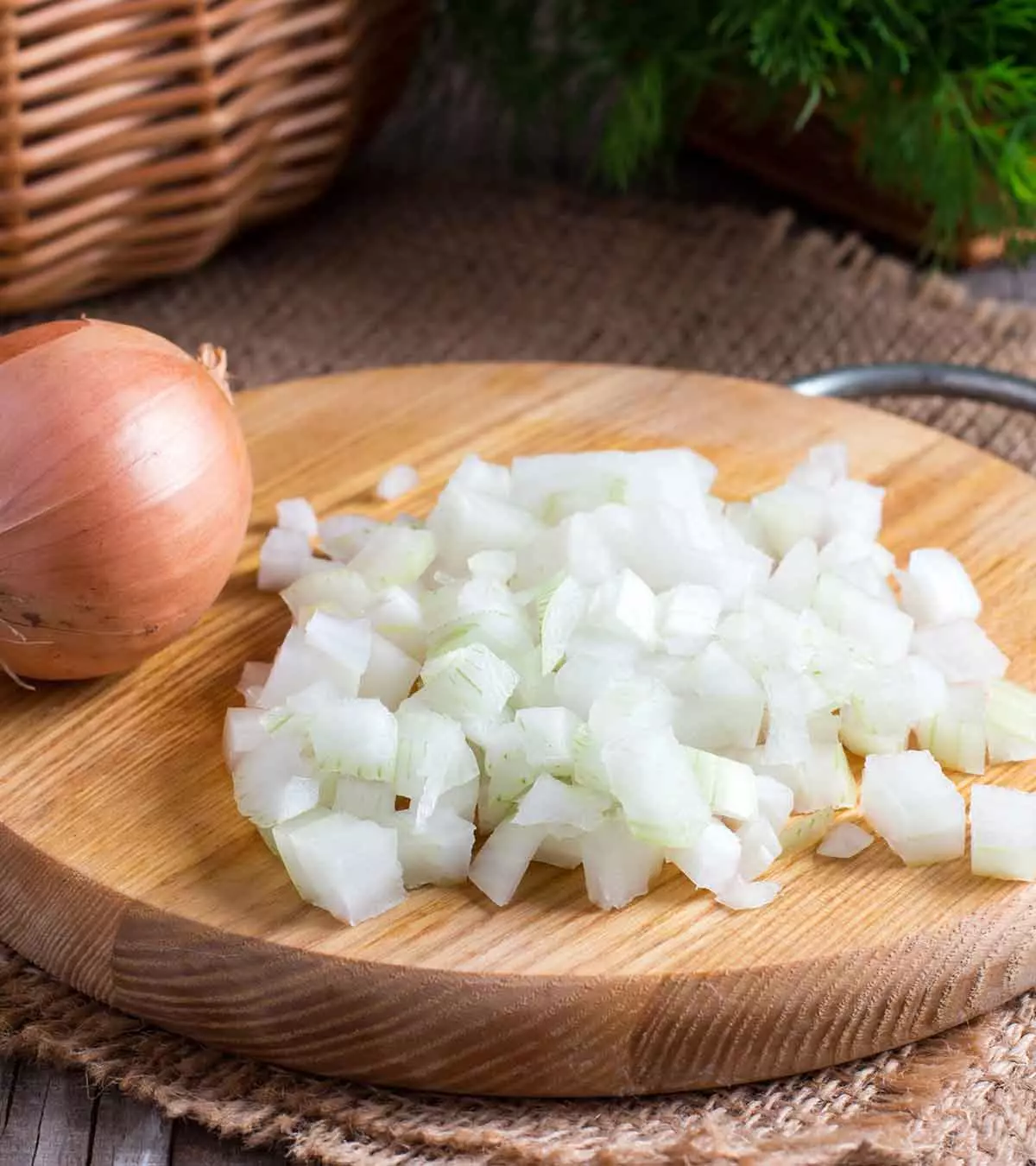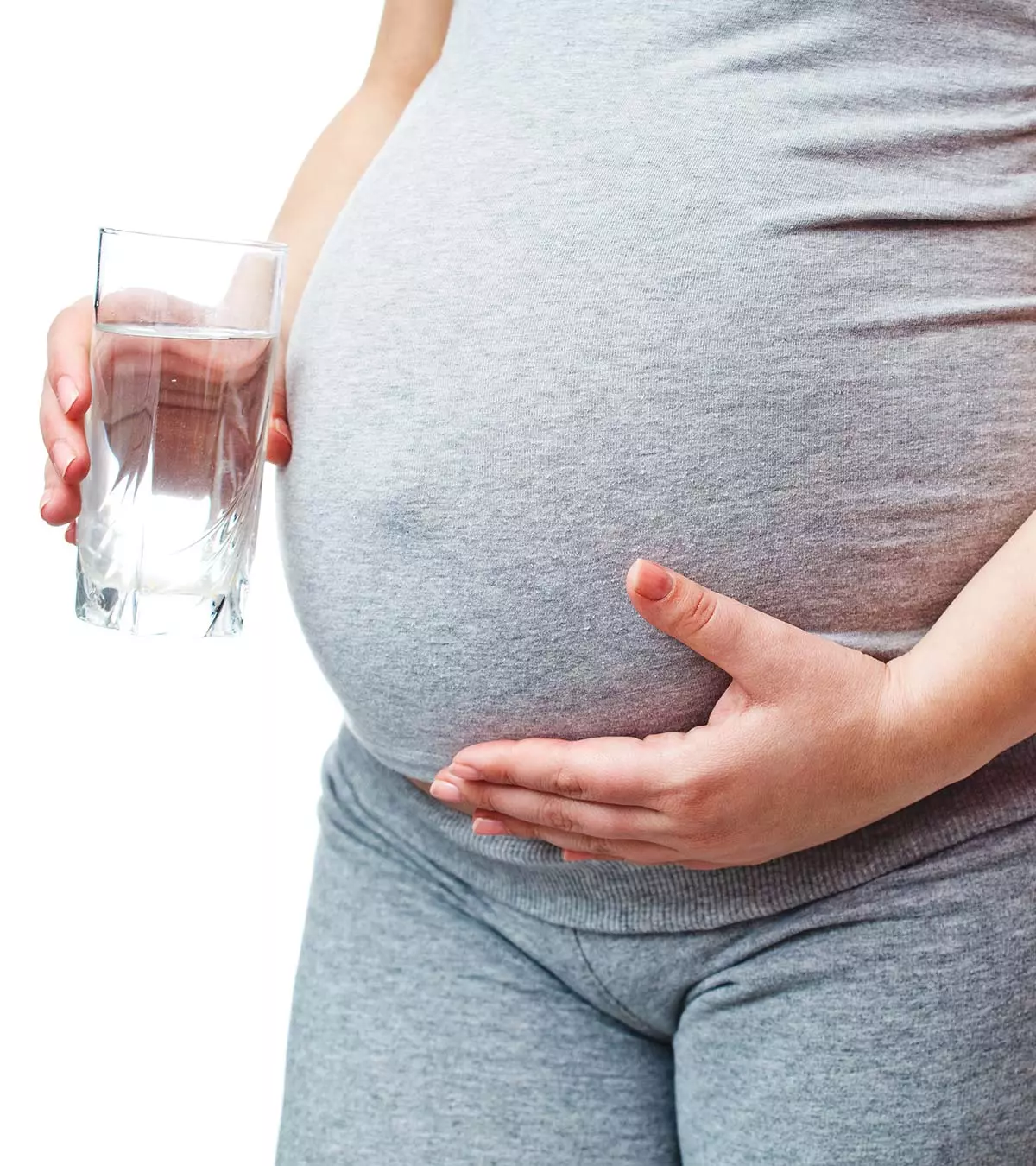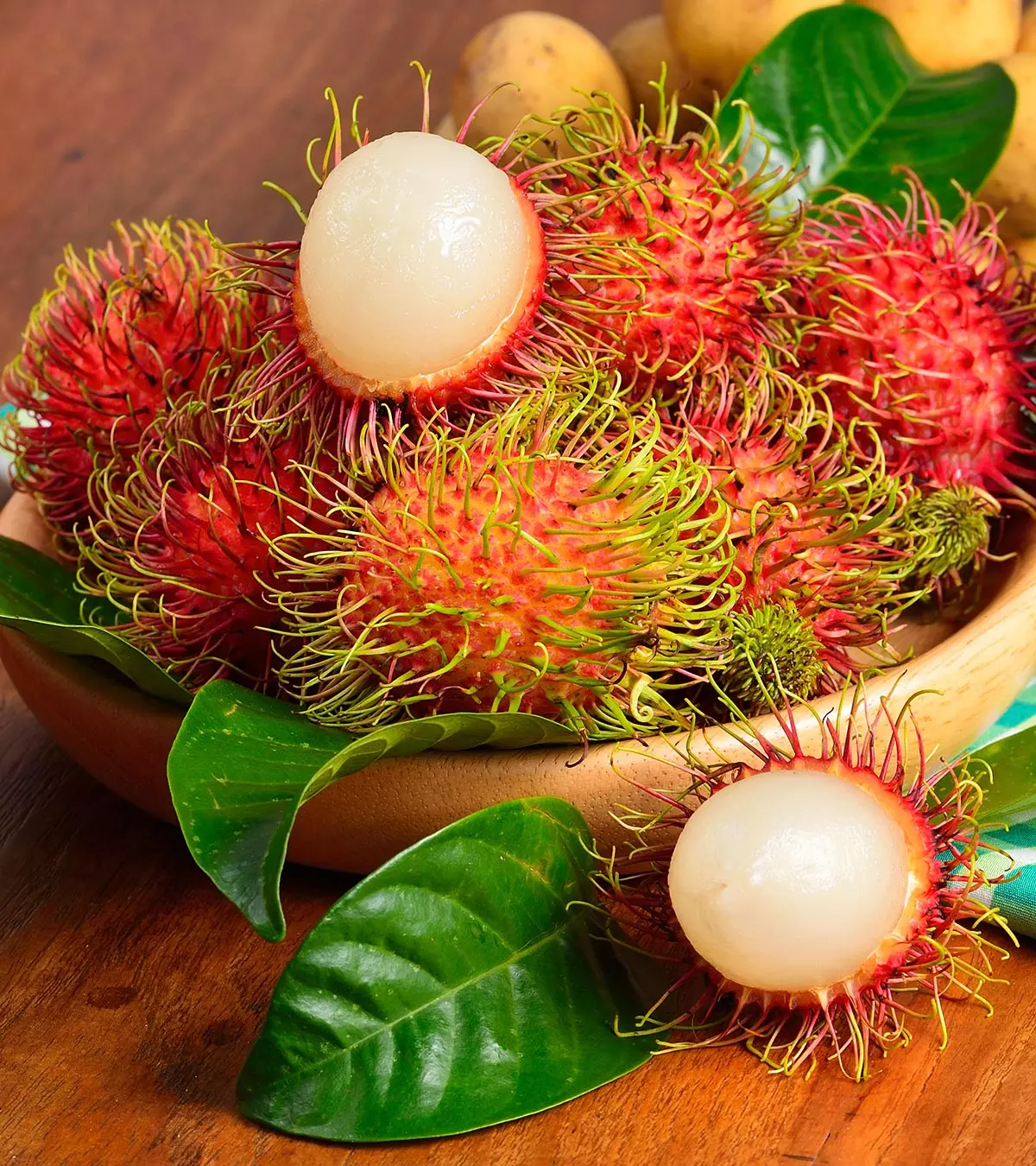
Image: iStock
Rambutan (Nephelium lappaceum) is a bright red exotic tropical fruit indigenous to Southeast Asia. The fruit has earned recognition because of its distinctive flavor, sweet taste, and nutritional advantages. However, if you are a pregnant woman, you might want to know if it is safe to consume Rambutan during pregnancy. Read on as we give you the answer in this post.

Adding this nutrient-rich fruit to your pregnancy diet may provide you with essential vitamins such as vitamin C, minerals such as iron and calcium, and fiber; furthermore, it may contribute to your increased dietary needs. So, scroll down and read more about the safety of Rambutan for expectant mothers, its possible health benefits and side effects, and the right ways to include Rambutan in your diet.
Key Pointers
- Rambutan provides nutrients like vitamin C, iron, calcium, and fiber and is safe for moderate consumption during pregnancy.
- The health benefits of rambutan include supporting digestion, improving hemoglobin counts, boosting immunity, and relief from nausea and vomiting.
- High sugar content in rambutan may cause blood sugar levels to rise and trigger side effects if consumed in excess.
- To prevent spoilage, it is advisable to purchase fresh, firm, and brightly colored rambutans and store them in a cool, dry environment.
Is It Safe To Eat Rambutan Fruit During Pregnancy?
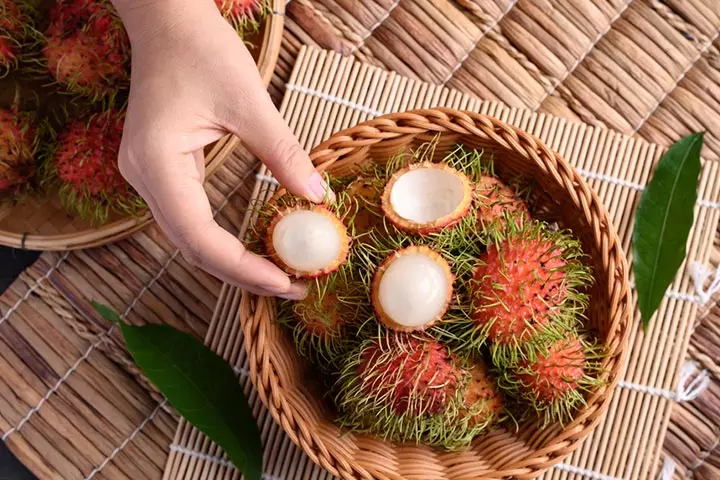
You may have rambutan in small quantities. The fruit is high in fats and calories and might help you gain ample nutrition and meet your daily caloric requirements (1).
In some Asian communities, pregnant women are discouraged from eating rambutan as the fruit is believed to cause miscarriage in the early weeks due to the heat generated by it. It is also believed to block the birth canal and complicate labor (2). These are long-standing cultural taboos that are not based on science or real-life studies.
Washington-based registered dietitian Alicia Chacha Miller says, “While rambutan poses no significant risks during pregnancy, it’s important to avoid consuming the peel and seeds. Some evidence suggests they may contain harmful compounds if ingested.
“To prioritize safety, wash the fruit thoroughly before cutting, even though the peel isn’t consumed, to prevent bacteria from transferring to the edible flesh. Following these simple precautions allows you to enjoy the nutritional benefits of rambutan safely during pregnancy.”
Nutritional Profile Of Rambutan Fruit
According to food research by Purdue University, rambutan contains 68kcal and small amounts of potassium (140mg), calcium (15mg), magnesium (10mg), sodium (2mg), and iron (0.1 -2.5mg) (3). The edible flesh contains about 2.8g of dietary fiber per 100g of the fruit. It has around 70mg of vitamin C that helps in absorbing dietary iron.
Why You May Eat Rambutan During Pregnancy

Rambutan could help you meet the daily recommended values of various nutrients during pregnancy.
- Vitamin C acts as a natural antioxidant, and improves immunity and fights common illnesses and diseases.
- The sweet and sour taste of the fruit could help you get relief from dizziness, nausea and vomiting (morning sickness).
- The dietary fiber could support digestion.
- Iron helps improve your hemoglobin levels and fights dizziness and fatigue.
- Calcium plays a crucial role in promoting healthy bones and muscles, which are essential for supporting the increasing fetal weight and overall fetal development.
Possible Side Effects Of Rambutan During Pregnancy
Over-consuming rambutan while pregnant might lead to the following problems.
- Overripe rambutan has high sugar content and might increase blood sugar levels if taken in excess amounts.
New York-based board-certified obstetrician-gynecologist Dr. Ila Dayananda opines, “Rambutan, like many fruits, contains natural sugars, so it is vital to monitor your intake and consume this fruit as part of a balanced diet. While some fruits may have a lower glycemic index, individual responses to fruit consumption vary. Hence, you must monitor blood sugar levels and adjust your diet accordingly.”
- Overripe fruit could also have traces of alcohol. Any kind of overripe fruit can have traces of alcohol and high sugar content.
 Caution
CautionHow To Select And Store Rambutan Fruit?
Follow the below tips while selecting the fruit:
- Fresh fruits are available from June to December.
- Choose bright red varieties. Roll your fingers over the fruit to check if the hairs are soft and flexible.
- Choose fruits that are firm as they have good flesh and are juicy.
- Avoid dull or brownish fruits and dried or brittle hairs, as they are old fruits.
- Store the fruit in a cool, dry place. They are likely to remain fresh for up to five days.
 Quick tip
Quick tipWays To Include Rambutan In The Pregnancy Diet
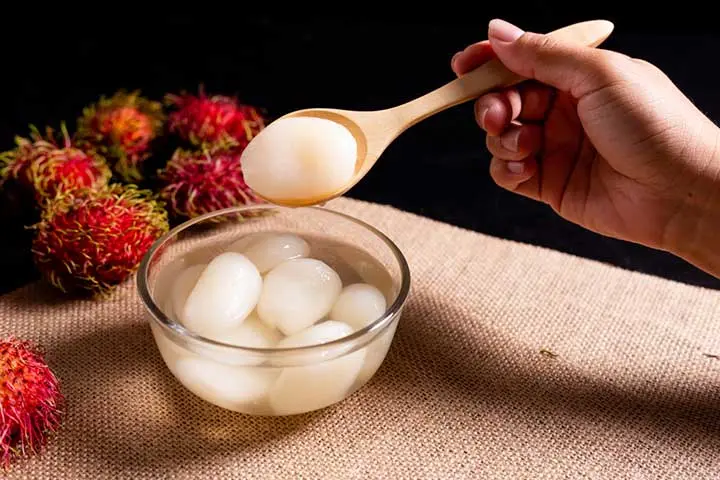
Rambutan is not only juicy and succulent, but it can also satisfy your sweet cravings during pregnancy benefiting maternal health.
- Fresh fruit can be eaten as-it-is without any seasonings or additions.
- The flesh can be added to fruit salads, puddings, ice creams, and other desserts.
- The juice can be a refreshing summer drink.
- Can be used in jams, jellies, sauces, syrups, and sorbet.
Pregnancy-Safe Recipes With Rambutan
Here are a few recipes you may consider when consuming rambutan during pregnancy. They are easy to make with simple ingredients.
1. Rambutan Coconut Smoothie
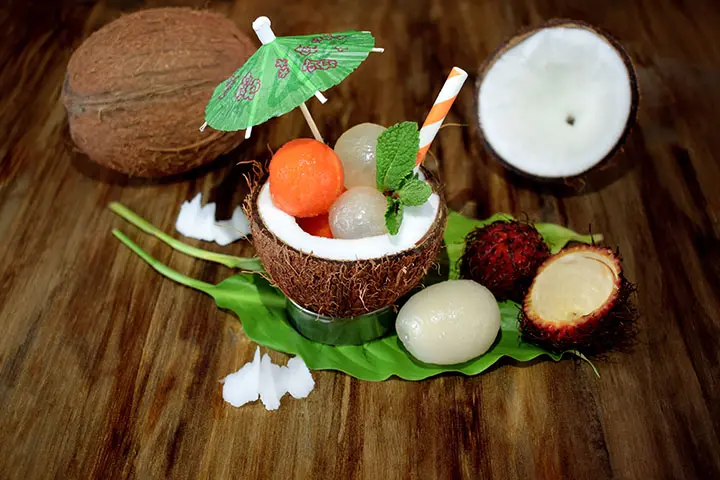
You will need:
- 8 Fresh rambutans (peeled, deseeded)
- 100g Pineapple or mango (chopped)
- 140ml Canned coconut milk
- 200ml Coconut water
- Ice cubes (optional)
How to prepare:
- Add the fruits, coconut milk, and coconut water to a blender.
- Blend the mix until smooth, and add some ice.
- Pour this mixture into a glass and serve immediately.
2. Fruit Granola With Rambutan
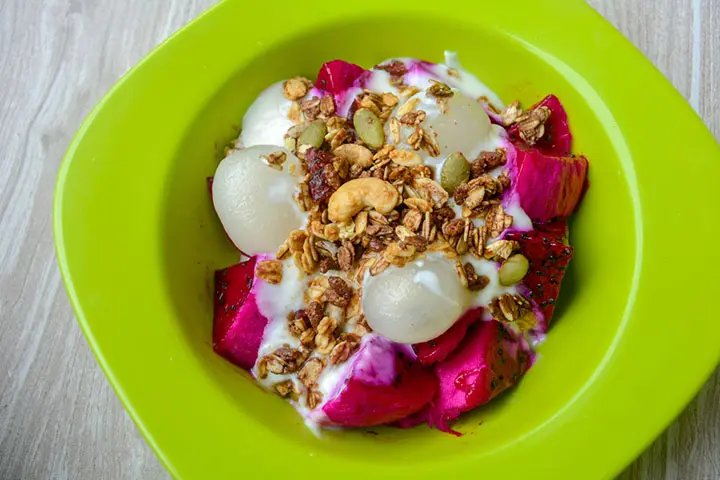
You will need:
- 4tbsp Granola
- 100ml Milk (boiled, chilled)
- 5-6 Rambutan (peeled, deseeded)
- 1 Banana (peeled)
- 1 Dragonfruit pulp
- 1tbsp honey (optional)
How to prepare:
- Slice the banana into slices. Refrigerate the sliced fruits, dragonfruit pulp, and rambutan for an hour or two.
- In a bowl, add granola, arrange the chilled fruits on top, and honey.
- Pour chilled milk over the top and serve immediately.
3. Rambutan Juice
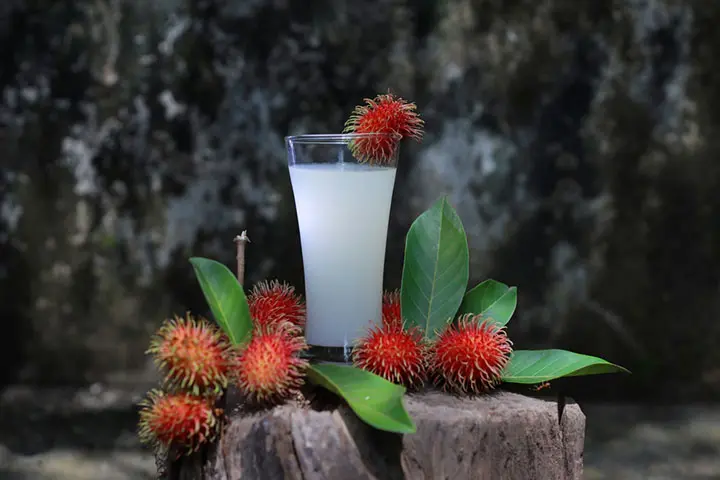
You will need:
- 5-6 Rambutans (peeled, deseeded)
- 1tbsp Sugar
- 5-6 Ice-cubes
- 1/4 cup water
How to prepare:
- Blend the rambutans, sugar, three ice cubes, and water until smooth and creamy in a blender.
- Once done, fill a glass with the rest of the ice and pour the juice over it.
Frequently Asked Questions
1. Is rambutan good for fertility?
While there are not enough studies on the effect of eating rambutan on female fertility, some studies have found vitamin C to improve fertility rates in women (5). Since rambutan is a rich source of vitamin C, we may consider eating rambutan to enhance fertility. In addition, an animal study showed that consuming rambutan fruit peel extract improved sperm count in rats (6). However, more studies are required to validate these findings and prove that rambutan could be beneficial for fertility in men.
2. Is rambutan a superfood for pregnancy?
Rambutan is rich in nutrients that may be helpful during pregnancy. While it can be considered one of the best fruits to eat during pregnancy, whether it can be called a superfood is debatable since there are no universally accepted criteria for defining any food as a superfood.
3. Can rambutan improve my dull pregnancy skin?
Rambutan is a tropical fruit rich in vitamins, minerals, and antioxidants, which are beneficial for overall health. However, there is limited scientific evidence specifically addressing its effects on pregnancy skin. While some nutrients present in rambutan, such as vitamin C and antioxidants, can potentially promote skin health, it is important to note that individual results may vary.
4. How much rambutan should I eat during pregnancy?
Rambutan is a tropical fruit that is generally safe to eat during pregnancy when consumed in moderation. During pregnancy, it is recommended to consume a balanced diet, including various fruits, vegetables, whole grains, lean proteins, and healthy fats. Overconsumption of any food may lead to digestive issues. If you have any concerns or specific dietary restrictions, it’s best to consult with your healthcare provider to ensure you’re following a healthy plan for your individual needs during pregnancy.
5. What should I do if I am concerned about eating rambutan during pregnancy?
If you have concerns about eating rambutan during pregnancy, it’s always a good idea to consult with your healthcare provider or a qualified nutritionist. They will be able to provide you with personalized advice based on your specific health condition and medical history.
Rambutan is a nutritious fruit rich in vitamin C, fiber, and copper. Consuming it as a part of a balanced diet can impart several health benefits over time. Though you can eat this delicious fruit as is, you can also use it to make delectable dishes, such as salads, puddings, desserts, smoothies, and shakes. Rambutan is high in energy-boosting nutrients such as carbohydrates, so overconsumption can cause a glucose spike. Taking excess sugar in pregnancy, especially for women with gestational diabetes, can have negative effects. You can safely consume rambutan during pregnancy, but ensure you do so in moderation.
Infographic: Benefits Of Rambutan During Pregnancy
Rambutan is a southeast Asian native fruit relished worldwide for its sweet flavor and a host of advantages. If you want to consume it when pregnant, make sure you maintain moderation. Also, learn about its numerous benefits by scrolling through the infographic below!
Some thing wrong with infographic shortcode. please verify shortcode syntax
References
1. Phnom Sukchan et al.; Inadequacy of nutrients intake among pregnant women in the Deep South of Thailand; BMC Public Health (2010)
2. RianDiana et al; Food taboos and suggestions among Madurese pregnant women: a qualitative study; Journal of Ethnic Foods (Dec, 2018)
3. Francis T. Zee; Rambutan; Horticulture & Landscape Architecture – Purdue University (1998)
4. Rambutan; USDA
5. Hirofumi Henmi et al; Effects of ascorbic acid supplementation on serum progesterone levels in patients with a luteal phase defect; Fertility and Sterility (2003)
6. Kerin Victoria et al; Effect of Rambutan Fruit Peel Extract on Total Sperm Counts of Wistar Rats With Obesity; (2025)
Community Experiences
Join the conversation and become a part of our nurturing community! Share your stories, experiences, and insights to connect with fellow parents.
Read full bio of Reda Elmardi
- Alicia Chacha Miller is a registered dietitian specializing in maternal and pediatric nutrition. She holds an MS in Nutrition Science from the University of Southern California and founded Cardamom Nutrition.
 Alicia Chacha Miller is a registered dietitian specializing in maternal and pediatric nutrition. She holds an MS in Nutrition Science from the University of Southern California and founded Cardamom Nutrition.
Alicia Chacha Miller is a registered dietitian specializing in maternal and pediatric nutrition. She holds an MS in Nutrition Science from the University of Southern California and founded Cardamom Nutrition.
Read full bio of Swati Patwal
Read full bio of Rebecca Malachi
Read full bio of Reshmi Das






